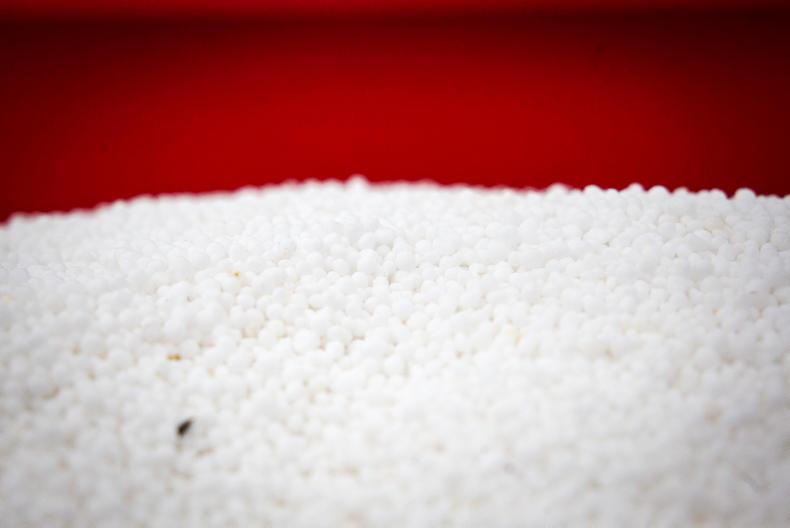All new stocks of fertiliser products being imported into Northern Ireland have been hit with a £15/t (€16/t) increase purely to offset the devaluation in sterling against the euro.
This move has been enforced by fertiliser manufacturers to prevent a surge in crossborder trading with Irish farmers opting to source nitrogen from NI merchants, leaving stocks unsold in merchant yards south of the border.
The price hike, which was applied on Monday 23 March, will see 27% CAN north of the border trading at £195/t to £200/t (€212 to €218) depending on the quantity being purchased and whether payment is made on delivery.
However, at the outlined price range, straight nitrogen is still £30/t to £40/t (€32 to €43) lower than the same period last year. The price correction brings urea to around £280/t (€300).
Existing stocks of fertiliser currently sitting in merchants yards, forward-bought at lower prices, are also likely to face a price correction.
?Republic prices steady
In the Republic of Ireland, there have been little to no change? in prices in the last number of weeks.
An Irish Farmers Journal price survey shows ?CAN prices hovering at the €225/t (£206/t)mark and standard urea at the €330/t (£302/t) mark.
Compound fertilisers
Compound fertilisers such as 18.6.12 are averaging at €340/t (£311/t), with prices for 10.10.20 at €375/t (£343/t).
Prices for pasture sward (27:2.5:5) come in at ?€337/t (£308/t) mark on average, with cut sward (24:2.5:10) selling for €357/t (£326/t) on average. Lower prices are being negotiated for discussion groups and producer groups ??buying in bulk?.
Fertiliser is sold differently between ?North?ern Ireland and the Republic. For a farmer in Northern Ireland seeing 24-6-12, the equivalent in the south is probably 24-2.5-10. NI products can appear higher in terms of P and K at similar prices because it’s P2O5 content, not straight. ??The same applies to K – it’s marketed as K2O in NI.






 This is a subscriber-only article
This is a subscriber-only article










SHARING OPTIONS: